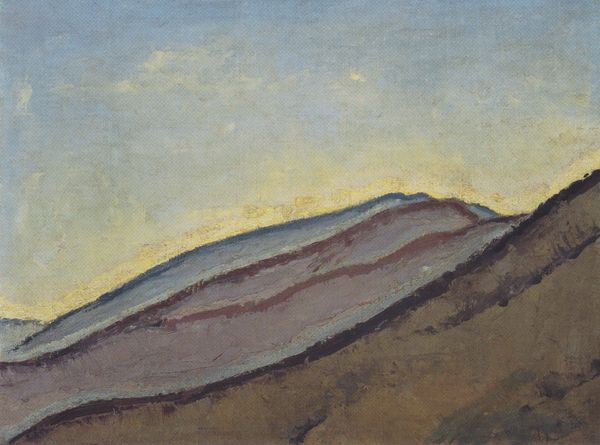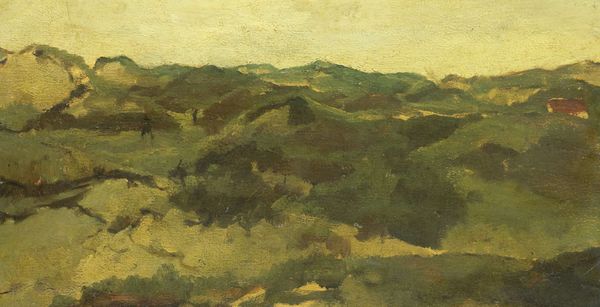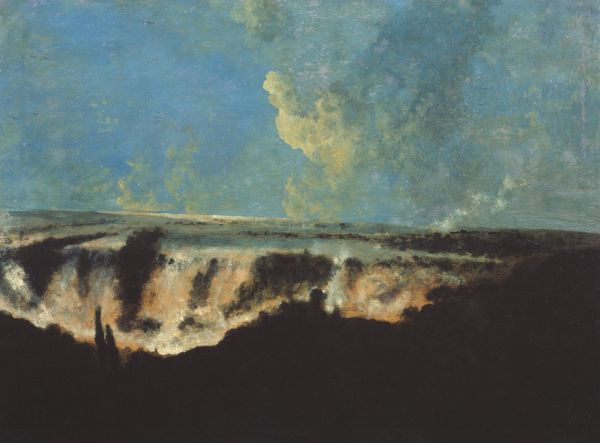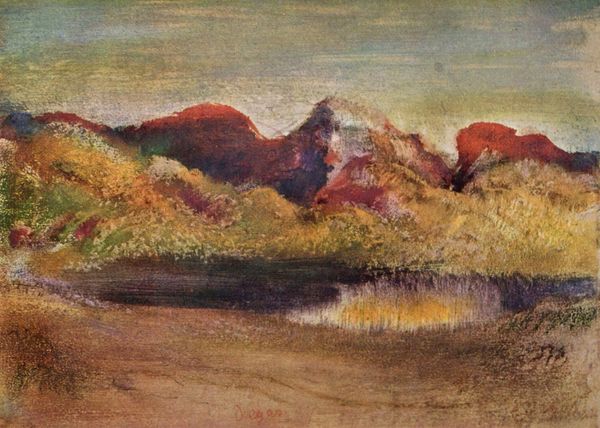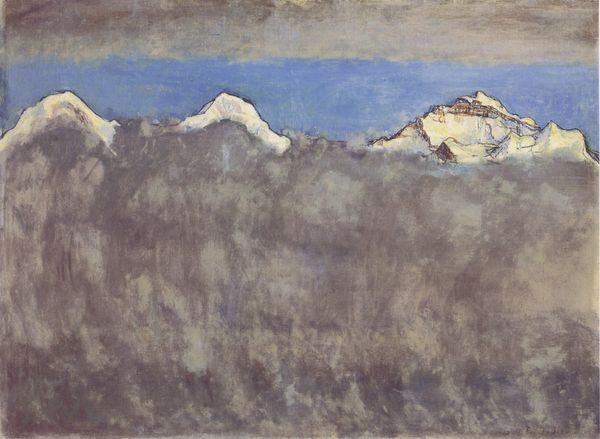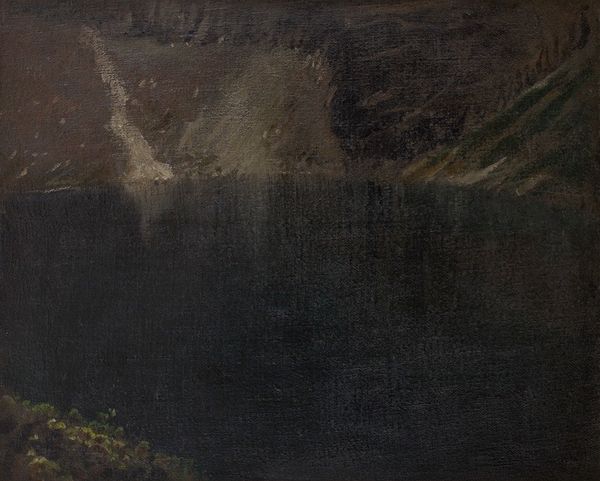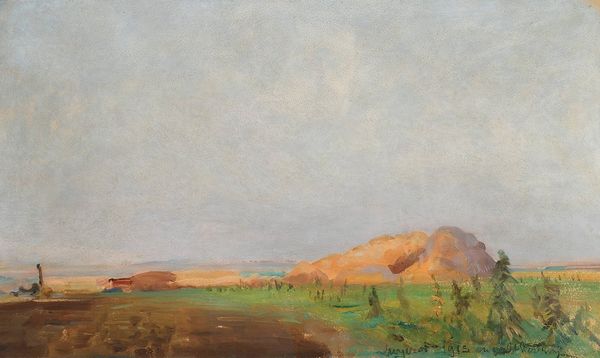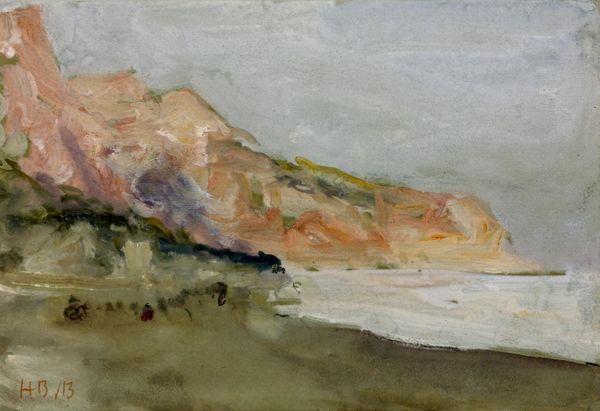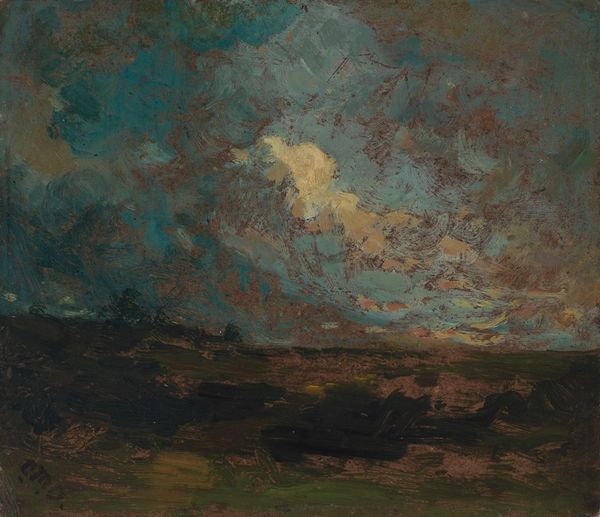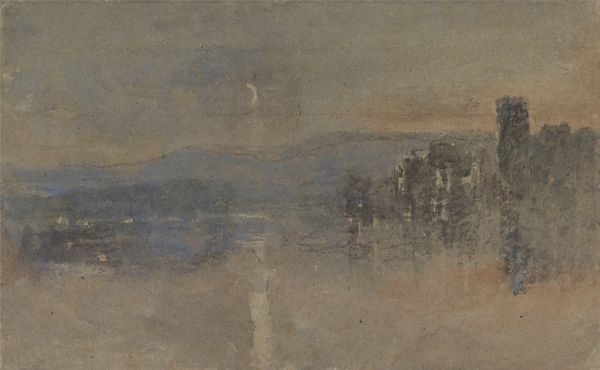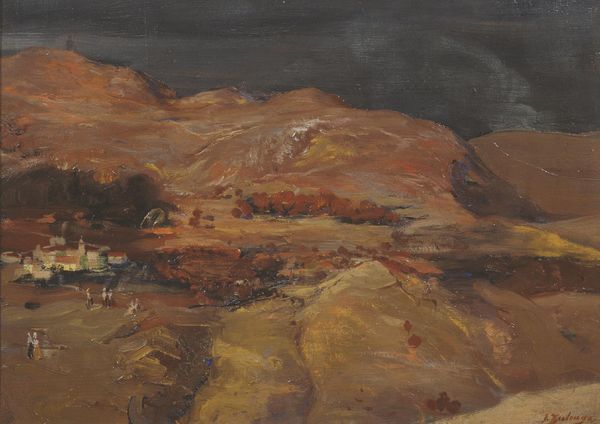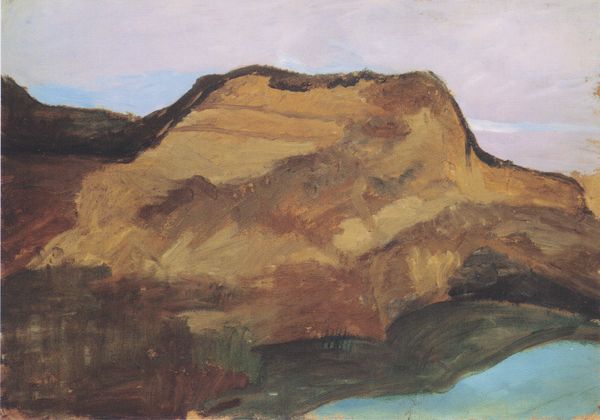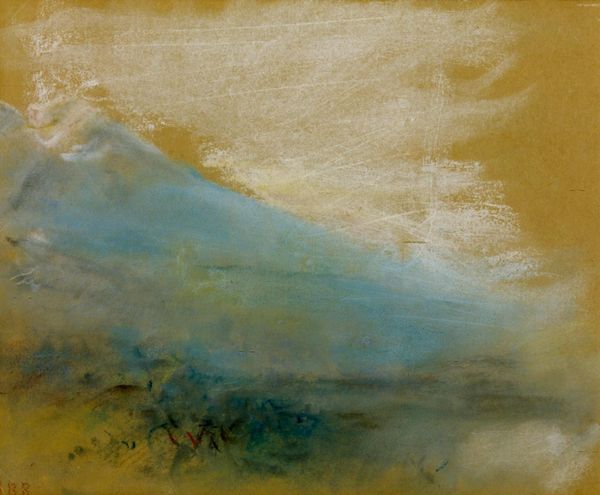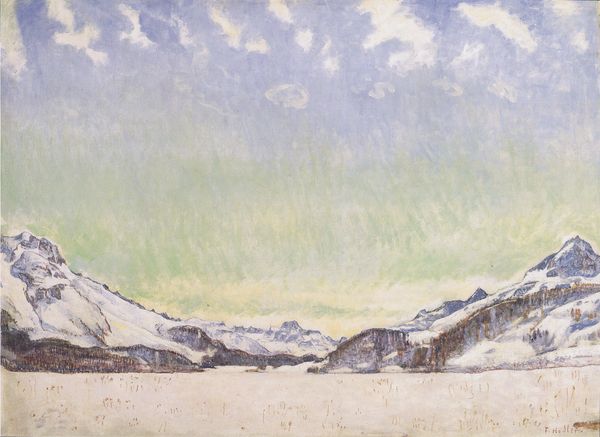
View of Mountains from the Porch of a Forester's House by the Road to Lake Morskie Oko 1903
0:00
0:00
Copyright: Public domain
Curator: This oil painting from 1903 is titled "View of Mountains from the Porch of a Forester's House by the Road to Lake Morskie Oko," and it’s by Leon Wyczółkowski. The painting captures a somewhat bleak landscape under a washed-out sky. Editor: It's interesting how Wyczółkowski’s rendering is almost minimalist. I’m getting a somber and melancholic feel from the muted color palette and simple forms. I see a world grappling with some unseen sociopolitical struggle. Curator: Perhaps. He painted this landscape during a turbulent time in Poland’s history, with the country partitioned and struggling for independence. I imagine it reflecting on concepts of home, belonging, and the nation’s physical identity within larger conversations about sovereignty. How do these themes sit alongside Impressionistic and Post-Impressionistic methods? Editor: Well, looking at the application of brushstrokes—it’s apparent that these broader sociopolitical circumstances were fertile grounds for explorations that deconstructed realism. In these conditions, even landscape painting takes on a politicized, resistive agency. Note, however, how nature itself – grand mountains – eclipses the suggestion of human settlement with only minimal focus on the porch. Curator: Indeed. He offers a vista unburdened by society, instead suggesting that something permanent lives outside the influence of human struggle. The perspective, from the shadowed porch, further reinforces the role of a witness – a conscious individual surveying both the intimate, constructed foreground and the immensity of the natural world beyond. Editor: Right, and I find the placement of this domestic architecture relevant to a developing critique of the ruling and landlord classes during this time period, reflecting larger debates about land use and national identity as the peasant classes increasingly seek a political voice. This also introduces considerations of privilege, of where such landscape painting could exist against the backdrop of extreme rural poverty. Curator: A powerful counterpoint. The ambiguity then, perhaps lies in whether this view is an invitation to a hopeful future, or an acknowledgement of inescapable human constraints, bound even when immersed in seemingly infinite space. It is worth pondering what these circumstances mean, generationally, even today. Editor: It really does make you wonder who has access to views like these. And how those perspectives ultimately shift or cement historical power dynamics.
Comments
No comments
Be the first to comment and join the conversation on the ultimate creative platform.
